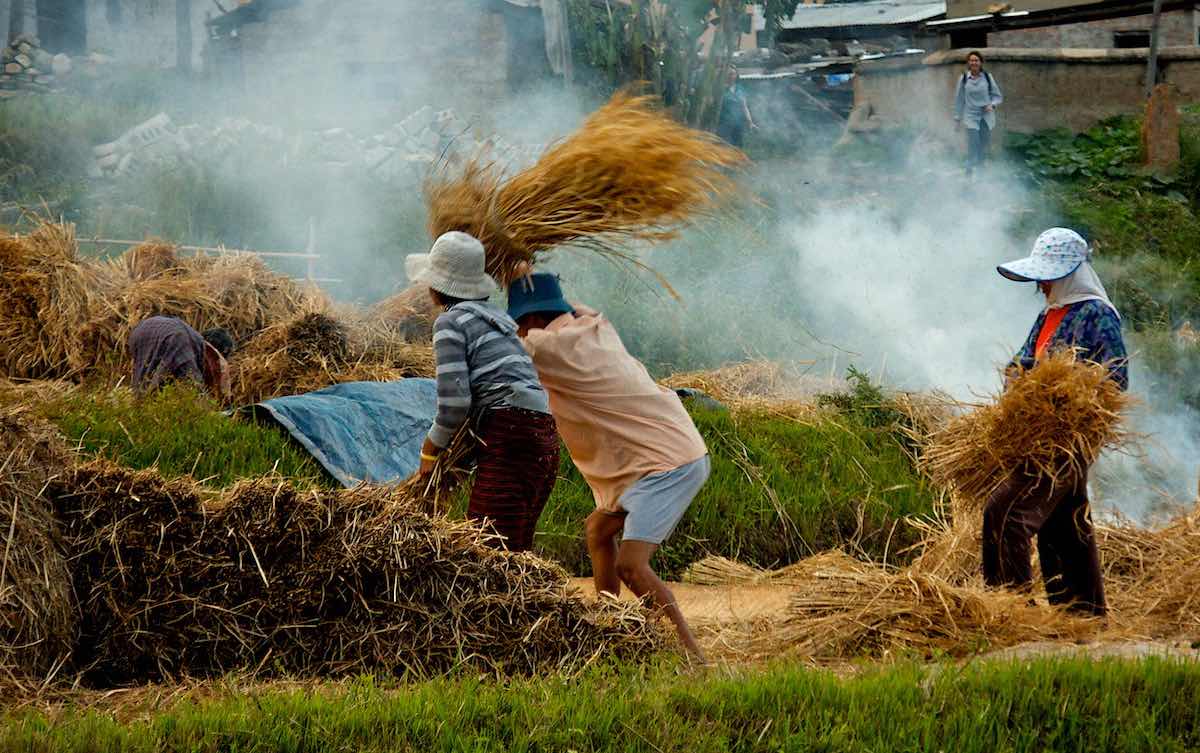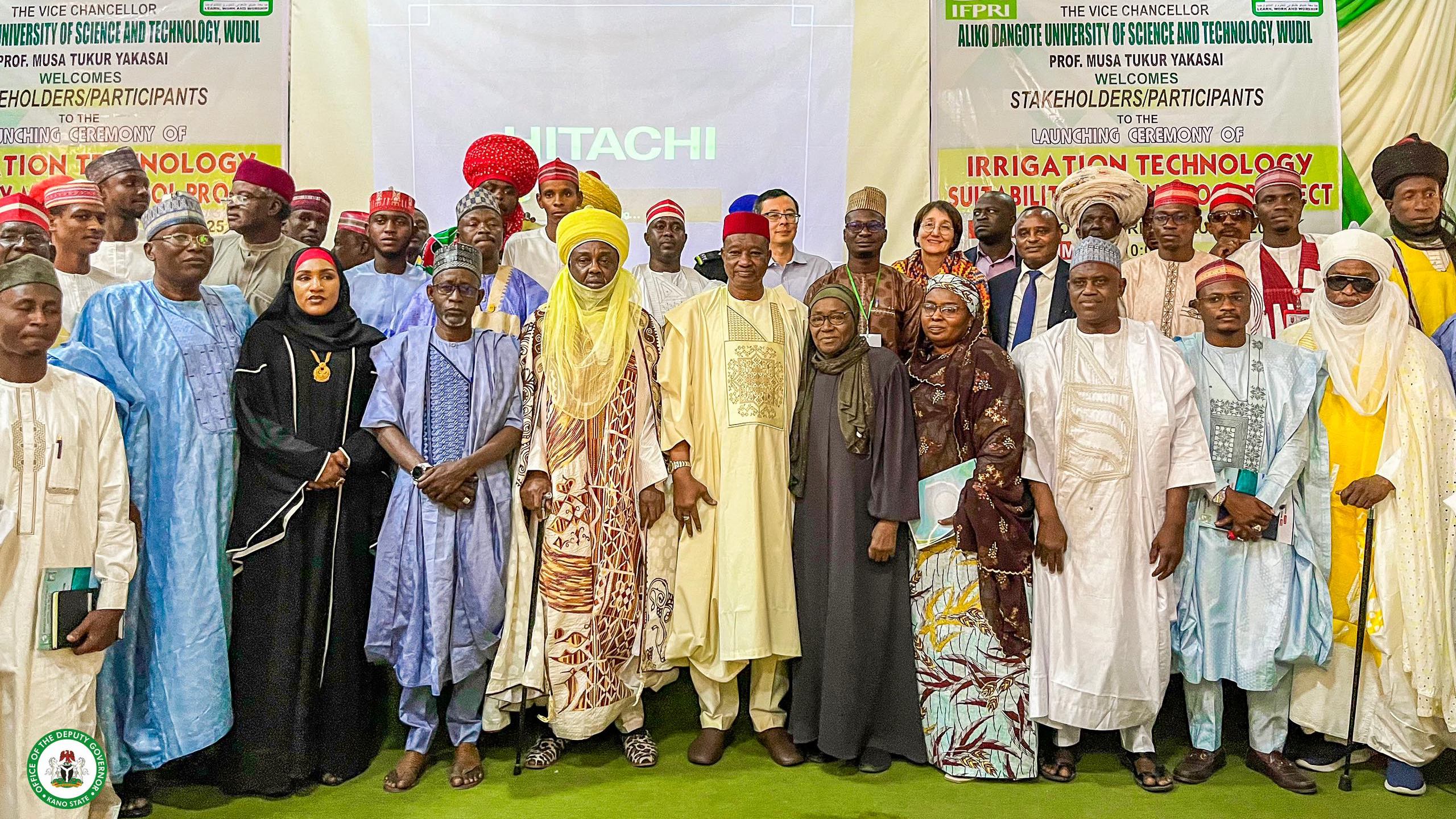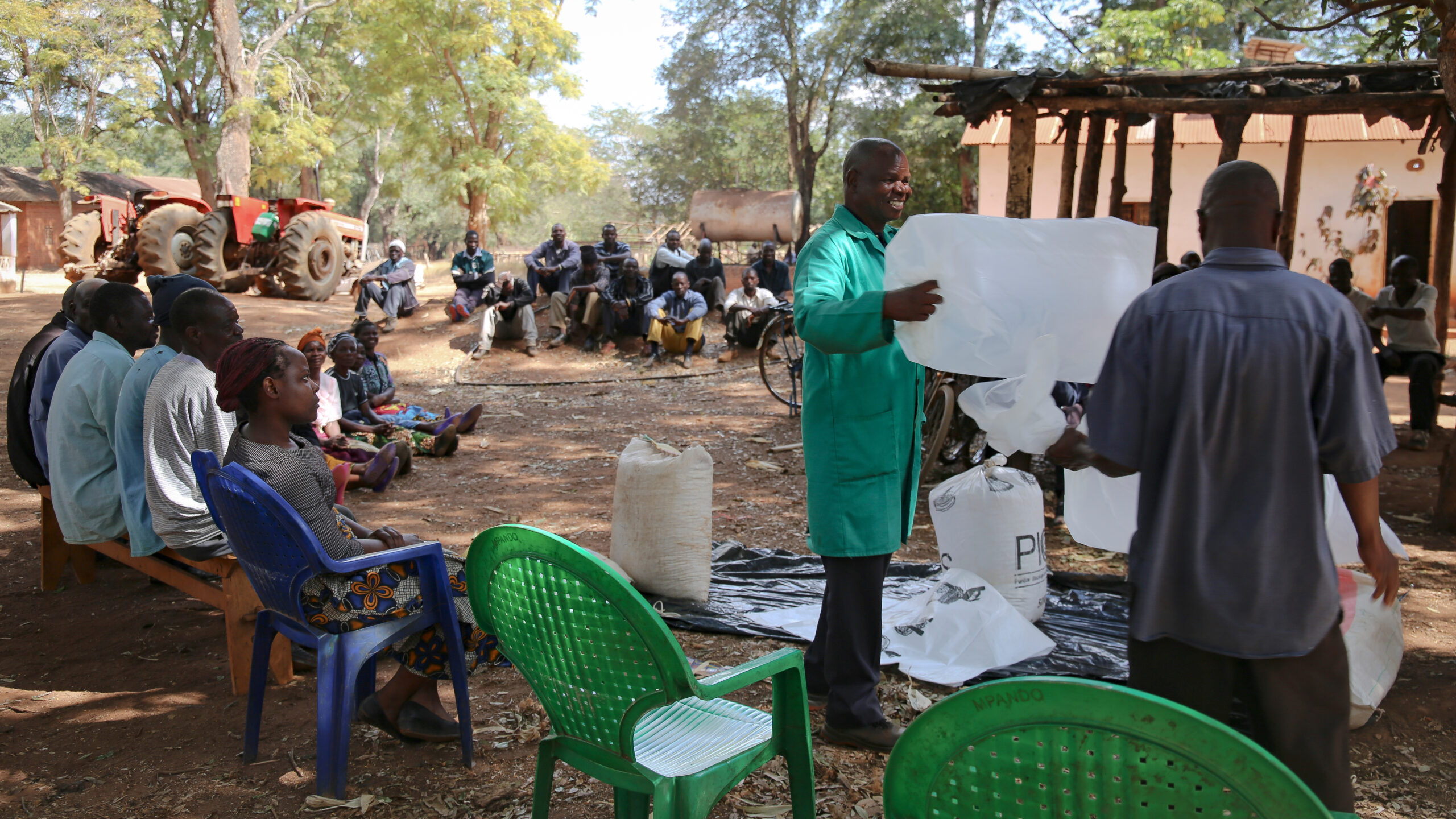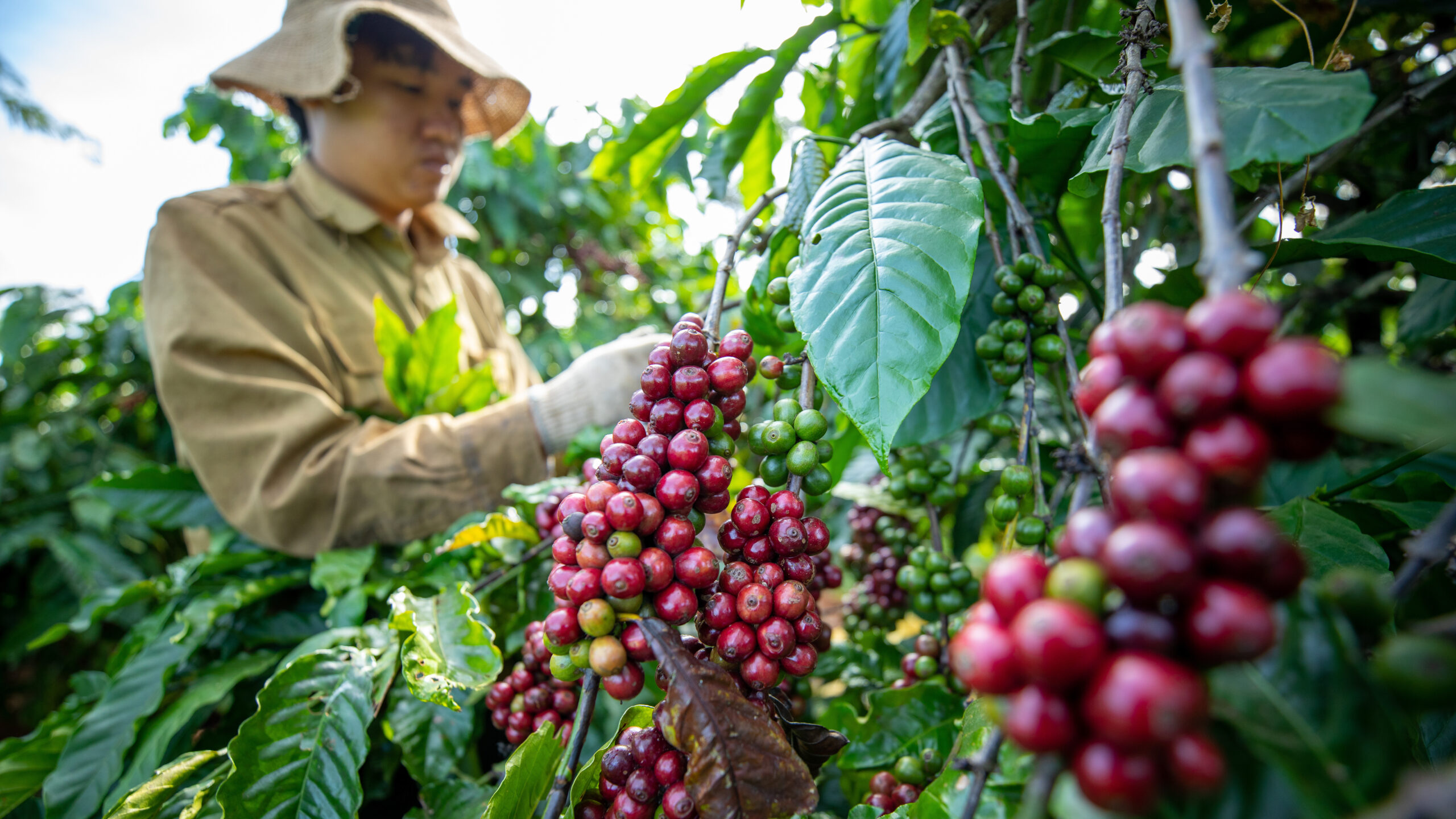The World Trade Organization’s 12th Ministerial Conference (WTO MC12) takes place June 12-15 in Geneva—two years after the pandemic forced members to postpone the meeting’s original schedule. In that time span, the world has changed and the importance of multilateral approaches to tackle international trade issues has become even more acute. The Russia-Ukraine war has highlighted a variety of unresolved trade issues as poor countries struggle to meet food security needs amid tightening global supplies and high prices, exacerbated by a conflict whose two participants account for 12% of agricultural world exports trade (on a kilocalorie basis) and threatening 20% of global fertilizer trade.
Two issues of particular concern amid the growing food crisis are export restrictions and public stockholding programs. Agricultural export restrictions have been a major topic in global trade negotiations since the food price crisis of 2007-08, when many countries imposed such measures, particularly on food grains like wheat and rice. Now it is happening again: Since Russia’s invasion of Ukraine in February, 23 countries have imposed export restrictions affecting over 16% of global agricultural trade on a kilocalorie basis.
Long-term WTO negotiations to address export restrictions, including exempting humanitarian aid from such measures, have failed to reach consensus. Public stocks are often used to address humanitarian needs when supply disruptions affect food supplies. Current WTO disciplines allow for public stockholding programs if the support they provide does not distort production or trade—but some members feel that these measures are overly prescriptive and outdated.
Resolving these thorny issues now would be a large step forward: Making progress on longstanding disputes and helping to address current and future price volatility and food insecurity when global supplies are tight and high market prices threaten poor households around the world.
Addressing export restrictions
When global supplies are scarce, countries sometimes limit agricultural exports to keep more food products within their borders and effectively insulate domestic price dynamics from world or regional markets. Such measures include export taxes, licensing procedures, export quotas, controlled releases of sanitary and phyto-sanitary certificates, and various “extended” inspection measures, and complete export bans. But they all share something in common: They are beggar-thy-neighbor policies that increase the cost of imports for trade partners and lead to major coordination issues across countries. They are precisely the type of policies that a well-regulated trading system should discipline, guaranteeing food importing countries and their consumers that they will not bear the brunt of global supply shocks.
Unfortunately, under the WTO and its predecessor, the General Agreement on Tariffs and Trade (GATT), policymakers have typically been guided by the nostrum that “exports are good, and imports are bad,” and most disciplines are aimed at opening import markets. While WTO rules technically prohibit export restrictions, a broad exception allows them on the condition that they are “temporarily applied to prevent or relieve critical shortages of foodstuffs or other products essential to the exporting contracting party.” The WTO Agreement on Agriculture (AoA) itself—formulated during the 1980s period dominated by declining prices and subsidies wars between the United States and Europe—did not address export restrictions.
Yet, when applied to food products, such policies can have devastating impacts on people’s livelihood, health, and countries’ political stability. Export restrictions are mainly used by developing countries, with dramatic consequences for other developing countries (again, the issue of South-South trade relations was not central during the GATT Uruguay Round).
Fortunately, the world has changed over the last 30 years. Low- and middle-income countries (LMICs) have become major food exporters and importers. Unfortunately, though, recent crises (food price crises of 2007-08 and 2011-2012, the COVID-19 pandemic, and the current crisis driven by the Russian invasion of Ukraine) have all resulted in spikes in export restrictions.
The poorest countries suffer the most from these policies. Since export restrictions tend to target commodities and staple food products (wheat, rice, soybean, palm oil), their impacts are larger for the Least Developed Countries (LDCs) that depend such products for their basic needs as shown in Figure 1: In 2008 and today, 25%-30% of LDC agricultural imports (measured in calories) were impacted by such restrictions, while the share is below 15% for developed economies. In the past, such policies have also blocked humanitarian shipments. Indirectly, meanwhile, these measures increase the cost of procuring food on world markets and will continue to hurt poor households and affect programs that address short-term food insecurity.
Figure 1
While export restrictions have other flaws and negative consequences, their impact on LDCs alone should place the issue on top of the WTO negotiation agenda—if member states want to be serious about global food security.
In this context, what can WTO members do? Here we outline five steps to address the issue. Two should be undertaken immediately:
- Exempt humanitarian shipments from any quantitative export restrictions or export taxes. This issue has been under discussion for years. The policy fix was well-articulated in the 2011 inter-organizations report on agricultural price volatility, and even “decided” by the G20 heads of state that same year: “We decide that food purchased for noncommercial humanitarian purposes by the World Food Program will not be subject to export restrictions or extraordinary taxes.” Yet a decade after, some G20 countries that agreed on this statement in 2011 are still blocking the integration of such language in the WTO framework. Without a clear decision during MC12, there is no point in continuing discussions on the issue.
- Improve the consultation and notification process.Ten years ago, it was also clear that WTO members should provide timely and transparent notification when they imposed restrictive measures to provide a basis for common trust and avoid market panics. Yet in practice, few countries provide any such notifications—before or even in the month following action. There is no obvious link between country size or level of income and the notification process. This shows that it is a not a lack of capacity but a lack of political will that remains the main problem. While the IFPRI export restriction tracker helps in providing key information, it cannot replace the core responsibilities of countries to be transparent about their policies, or be a substitute for a proper WTO process.
Following those two steps, medium-term measures should include:
- Exempt LDCs and insular economies from agricultural export bans and restrictions. With a proper institutional framework and monitoring the risk of re-exports could be limited, avoiding leakages in the system.
- “Develop an operational definition of a critical food shortage situation that might justify consideration of an export restricting measure.” Using the same language proposed in 2011, we should operationalize and restrict the usage of the original Article XI language governing such measures, while also outlining clear definitions of the various export restrictions.
Finally, to build trust in the global trading system as a robust pillar of worldwide and national food security agendas:
- Rebalance disciplines between importers and exporters by removing all types of quantitative export restrictions, except for exceptional situations, and provide a system of bound commitments on export taxes.
Providing a long term solution to public stockholding program issues
MC12 also provides an opportunity to find a long-term solution to WTO rules regarding public stockholding (PSH) programs.
Unlike some other thorny issues in the negotiations (for example, market access, domestic support), there is generally broad consensus among members that PSH programs are established to provide food security and should not be used to undermine domestic support disciplines. The question has been whether provisions under the WTO AoA are outdated or inadequate to address food security concerns.
Public stockholding programs are used by some governments to purchase, stockpile, and distribute food to people in need. The WTO AoA explicitly recognizes the need to take account of food security and exempts PSH programs subject to specific criteria laid out in the agreement’s Annex 2.
However, some stockholding programs are considered be trade distorting when they involve purchases from farmers at prices fixed by the governments, known as “supported” or “administered” prices. Also, current public stocks are highly concentrated among a few countries (Figure 2), and a delicate balance must be found between the flexibility required by most LMICs that have limited fiscal capacity to distort global markets (e.g., most African economies) and the risk of strong disruptions that could occur when such flexibilities are granted, and used, by large emerging economies.
Figure 2
The WTO’s interim 2013 Bali decision to exempt PSH programs from legal challenge under certain conditions appears to be the most promising avenue for resolution. More technical fixes, such as updating the methodology for establishing a fixed external reference price, would have broader implications for calculating support under more general price support programs. Moreover, changing the way in which the fixed external price is calculated could raise questions on whether domestic support bindings would need to be adjusted to reflect the new methodology.
One potential avenue would be to expand the Bali decision to include a broader group of eligible foodstuffs than traditional staple crops, but only if the reporting requirements were maintained. Members could consider whether to agree to refrain from challenges under the dispute settlement mechanism support provided by LDCs.
Lastly, transparency is a critical feature underpinning the AoA, and PSH programs should be no exception. Members should be strongly encouraged to report such programs as part of their domestic support reporting requirements. For members who consider such notifications a burden because of lack of timely data, the WTO and other organizations should provide assistance to enhance existing technical capacity.
Conclusion
The global food crisis will take center stage at MC12, and WTO members have an opportunity to resolve long-deadlocked issues in the agricultural negotiations. Progress on other issues will be important as well (for example, domestic support, fishery subsidies, resolving the Appellate Body crisis), but disciplining export restrictions and providing a long-term solution to rules governing public stockholding programs could help protect people around the world from the immediate threat of rising food insecurity, and help members better manage food supplies in future crises.
Joseph Glauber and David Laborde are Senior Research Fellows with IFPRI's Markets, Trade, and Institutions Division (MTID); Abdullah Mamun is a MTID Senior Research Analyst; Elsa Olivetti is a MTID intern; Valeria Piñeiro is a MTID Senior Research Coordinator. Opinions expressed are those of the authors.







